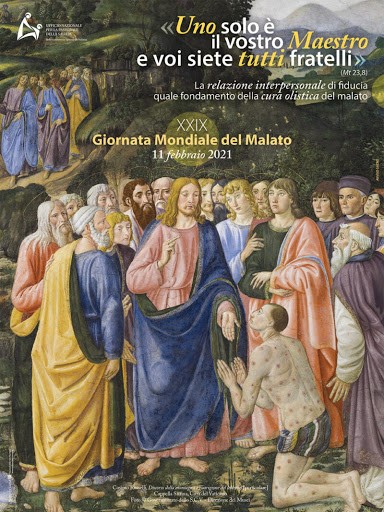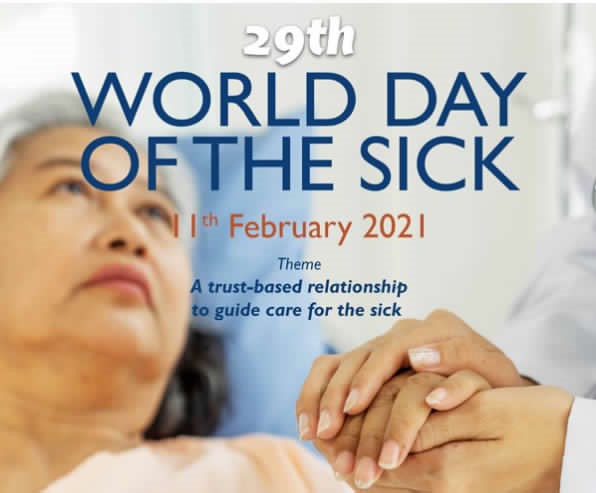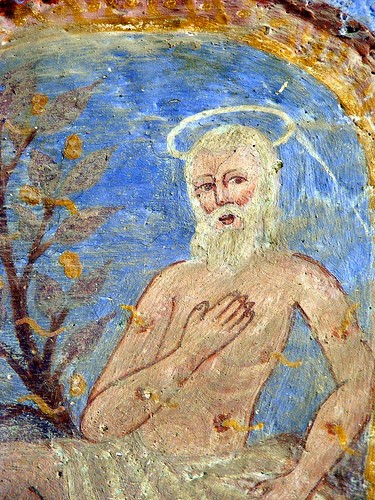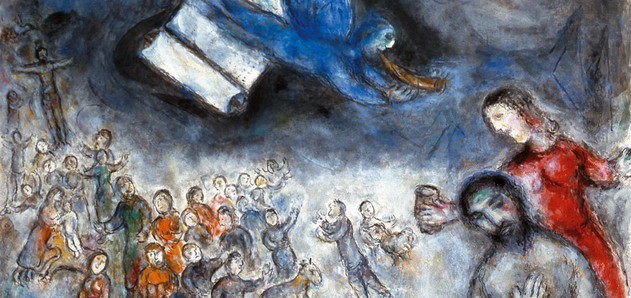
11 FEBRUARY – XXIX WORLD DAY OF THE SICK
The relationship of trust at the basis of care for the sick
The theme of this year’s Day (we provide a link to last year’s) – which is celebrated on the feast of the Blessed Virgin Mary of Lourdes – is inspired by the Gospel passage in which Jesus criticizes the hypocrisy of those who say but do not do: “One is your Master and you are all brothers and sisters” (Mt 23:8). When faith is reduced to sterile verbal exercises, without involving oneself in the history and needs of others, then there is no coherence between the professed creed and real life. The risk is grave; for this reason Jesus uses strong expressions to warn against the danger of slipping into idolatry of oneself, and he affirms: “One is your Master and you are all brothers“.

“The experience of illness makes us feel our vulnerability and, at the same time, the innate need for the other. The condition of creatureliness becomes even sharper and we experience our dependence on God in an obvious way. When we are sick, in fact, uncertainty, fear, sometimes dismay pervade our minds and hearts; we find ourselves in a situation of impotence, because our health does not depend on our abilities or on our «toil»(cf. Mt 6:27)”.
"Illness imposes a question of meaning, which in faith is addressed to God: a question that seeks a new meaning and a new direction to existence, and which sometimes may not find an answer immediately. The same friends and relatives are not always able to help us in this arduous search."

Job, painted on a wall of the Galbusera Nera farmhouse
in the Regional Park of Montevecchia and Curone Valley
"The biblical figure of Job is emblematic in this regard. His wife and friends fail to accompany him in his misfortune; on the contrary, they accuse him, amplifying his loneliness and bewilderment. Job falls into a state of abandonment and incomprehension. But it is precisely through this extreme fragility, rejecting all hypocrisy and choosing the path of sincerity towards God and others, that he makes his insistent cry reach God, who in the end responds, opening up a new horizon for him. He confirms to him that his suffering is not a punishment or a chastisement, nor is it a state of distance from God or a sign of his indifference. Thus, from Job's wounded and restored heart flows that vibrant and moving declaration to the Lord: 'I knew you only by hearsay, but now my eyes have seen you' (42:5)".
(cf. Message of Pope Francis)

